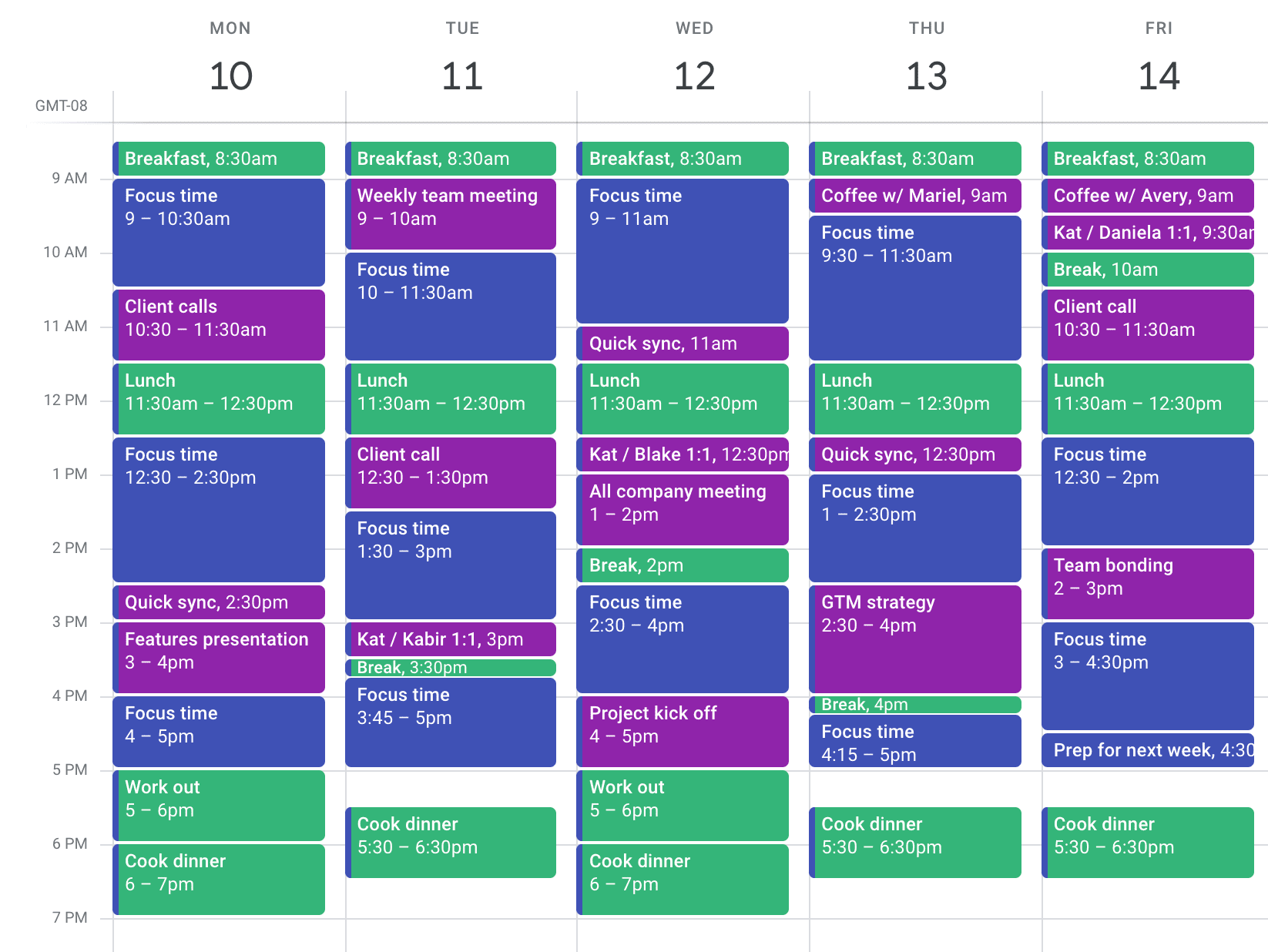We all face fear of failure. It often arises when we step into the unknown, unsure of how we’ll perform or how our efforts will be received. Recently, I faced two such situations that stretched my comfort zone and tested my ability to rise above self-doubt.
Read MoreIn the fast-paced world we live in, managing our time effectively has become a critical skill. Many of us rely on to-do lists to organize tasks and responsibilities. However, there's a powerful productivity hack that goes beyond the traditional to-do list – incorporating tasks directly into your calendar. In this article, we'll explore the importance of moving tasks from a to-do list to your calendar and how it can revolutionize your approach to time management.
Time Blocking for Focus: One of the key benefits of moving tasks to your calendar is the ability to employ time blocking. Time blocking involves allocating specific blocks of time to different tasks or activities. By scheduling tasks directly into your calendar, you create dedicated time slots for focused work. This helps in avoiding multitasking and ensures that you give each task the attention it deserves.
Have you ever wondered what sets thriving businesses and organizations apart? Or how successful individuals navigate life's twists and turns with confidence?
What if you could unlock a method that not only identifies strengths and weaknesses but also illuminates opportunities and shields against threats?
The answer often lies in a strategic yet simple tool—the SWOT analysis.
Read MoreAs the year winds down, it's an instinct to look ahead and ponder the possibilities that the new year holds. Goal setting and planning for the upcoming year aren't just routine practices; they are powerful tools that pave the path towards personal and professional fulfillment. Let's delve into the significance of goal setting and crafting a roadmap for the year ahead.
Read MoreThe good news is that there are strategies to help individuals increase their chances of success.
Here are some tips:
Set specific, realistic goals: Clearly define resolutions with specific, achievable targets. For instance, instead of saying, "I want to exercise more," specify, "I will exercise for 30 minutes, three times a week."
Break it down: Divide larger goals into smaller, manageable steps. Create a timeline or monthly/weekly milestones to track progress and stay motivated.
Did you ever want to achieve something badly and then commit yourself to doing something about it, only to fall short, perhaps even spectacularly?
If you answered yes, I have some “good” news for you. You’re not alone. Hardly so.
The most common example of this “want-commit-fail” continuum is, of course, New Year’s resolutions. Common resolutions like exercising more, eating healthier, and saving money often top the list. While statistics on fulfilling New Year's resolutions vary, studies suggest that a significant portion of people struggle to stick to their resolutions long-term.
According to research conducted by the University of Scranton, only about 8% of people achieve their New Year's resolutions. This low success rate is often attributed to various factors such as unrealistic goals, lack of specific plans, and insufficient commitment.
Read MoreTheir presence triggered mixed emotions
Recently, at Sabbath prayer services, a group of young men were in attendance
Turns out that they attended a NYC yeshiva that I had interviewed at when I was in process of leaving Atlanta eight years ago
That job search, like a few others, had come up empty, and again I was feeling low
Recently, I was out driving on the highway during a rain storm. I signaled right and started to switch lanes. The problem was that, due to low visibility, I failed to see a van that was moving into the same space. It’s tail swiped the front side of my car.
For the next few days, I drove around with increased hesitation. Before turning, I would double and triple check. My driving speeds were down a few miles. In general, I was more cautious. After a while, however, I was back to my New York driver self, navigating the streets with (semi) reckless abandon.
It’s common for people who experience a setback to be more cautious the next time. The problem is, many folks will often view a single failure as an indictment on past efforts and not try again. For example, they make a large number of sales calls that don’t convert. Or they produce a product, service or program that they believe will sell and get almost no response. So, they quickly throw in the towel and give up.
Read More








